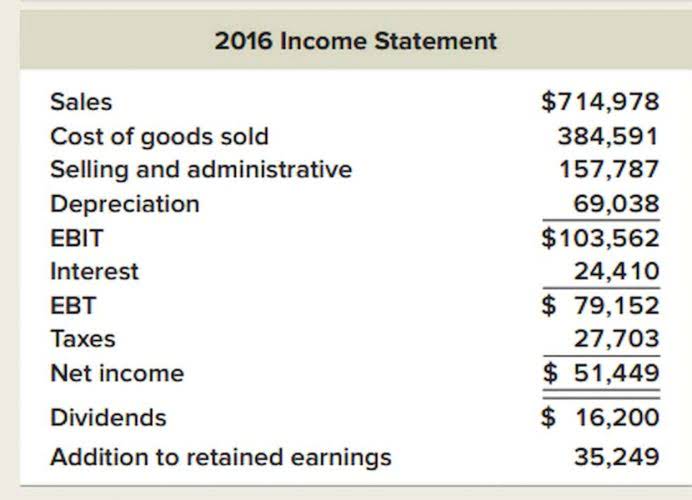
Accounting might not be the most exciting part of running a startup, but it is what keeps your business financially healthy. Following proven accounting advice for startups can help you stay on top of your finances without breaking a sweat. Plus, remote accountants or outsourced firms have the tools and expertise to streamline your processes and keep things running smoothly. So, while in-house sounds appealing, outsourcing might be the best way to keep your startup’s finances in accounting firms for startups check without stretching your resources too thin. If you are unsure about deductions, keep a detailed record of all your expenses, as many business-related costs can be deducted from your taxable income.
Step 5: Create A Chart Of Accounts

Investors and potential buyers rely on financial data to assess the worth of a startup and negotiate deals. Startups are subject to various legal and regulatory requirements related to financial reporting and taxation. Failing to maintain accurate accounting records and comply with relevant laws can lead to penalties, fines, and legal consequences. Read about some of our expertise on our tech startup industry page.
How Do You Start a New Business Accounting System?
![]()
Integrating precise financial tracking directly impacts investor trust and business valuation, which are crucial for obtaining funding and scaling operations. Neglecting this https://www.bookstime.com/ aspect can result in costlier corrections down the line, negatively impacting financial health. Accounting isn’t just a backend task—it’s key to your startup’s survival.
- The best accounting software automates a lot of the process in journal entries for regular debits and credits to help eliminate possible errors in data entry.
- Consider tiered pricing plans, potential add-on fees, and the value you’re getting for your money.
- QuickBooks Live is a seamless transition for those already using QuickBooks, helping you streamline data entry while keeping you focused on growing your business.
- Startups must fulfill their tax obligations, including income tax, sales tax, payroll tax, and more.
- You juggle many hats and managing the books shouldn’t be one of them!
- Plus, you can get automatic accounting reports, receive guided workflows and set it up in five minutes.
Does your startup need an accountant or bookkeeper?
However, once I became more familiar with the software’s layout, completing tasks required no learning curve, even when setting up advanced actions such as automations. For example, to add a new project, I clicked “time tracking” on the left-hand menu, then the “projects” submenu item. From there, I could click “+New Project” at the top of the resulting screen and fill out a simple form to add my new project. To add to the software’s ease of use, templates make setting up automations intuitive. Regularly monitor your cash flow to ensure you have enough funds to cover operational costs and unexpected expenses. Consider creating a cash flow forecast to anticipate future cash needs and avoid shortfalls.
Accounting For Startups: Everything You Need To Know In 2025

Users say the software is easy to use and that customer service is responsive, knowledgeable and caring. However, they also What is bookkeeping say that accessing the software on mobile devices is extremely difficult and navigating the software menu can be confusing at times. This tool allowed me to start a timer and allocate the time to a client or project and even specify the tasks worked on during the logged time. I was able to complete and send the invoice in less than 30 seconds.
The most experienced
Completing tasks within the platform was as simple as filling out simple forms and following instructions that walked me through how to complete tasks (like connecting my bank account). Reports offered instructions to help me interpret them and easy filtering options to customize them to my needs. You can create a quote and then convert it into an invoice when the customer is ready to buy. You can convert the quote and bill by a percentage of the original quote or a set quantity, rate or amount. And, you can attach documents to the invoice when needed, including warranties, contracts and return policies.
How can I learn how to use accounting software?
- Late payments – whether from clients or for bills – can mess up your cash flow.
- Maintaining clear and organized accounting records enhances relationships with investors and creditors.
- Key takeaways from our discussion include the importance of understanding core AI technologies, developing effective implementation strategies, and overcoming common challenges.
- Your accountant monitors your financials and ensures your compliance documents are in place and accurate.
Manual invoice processing can be a significant drain on a small business’s resources, with the average company spending around $12 to $15 per invoice on processing costs alone. This can quickly add up, especially for businesses that deal with a high volume of invoices on a regular basis. In fact, a study by APQC found that the average accounts payable department processes around 1,200 invoices per month, resulting in an annual cost of around $14,400 to $18,000. Financial analysis plays a pivotal role in the success and growth of small businesses and startups. It enables these entities to make informed decisions, evaluate performance, manage risks, and plan for the future.
Leave a Reply